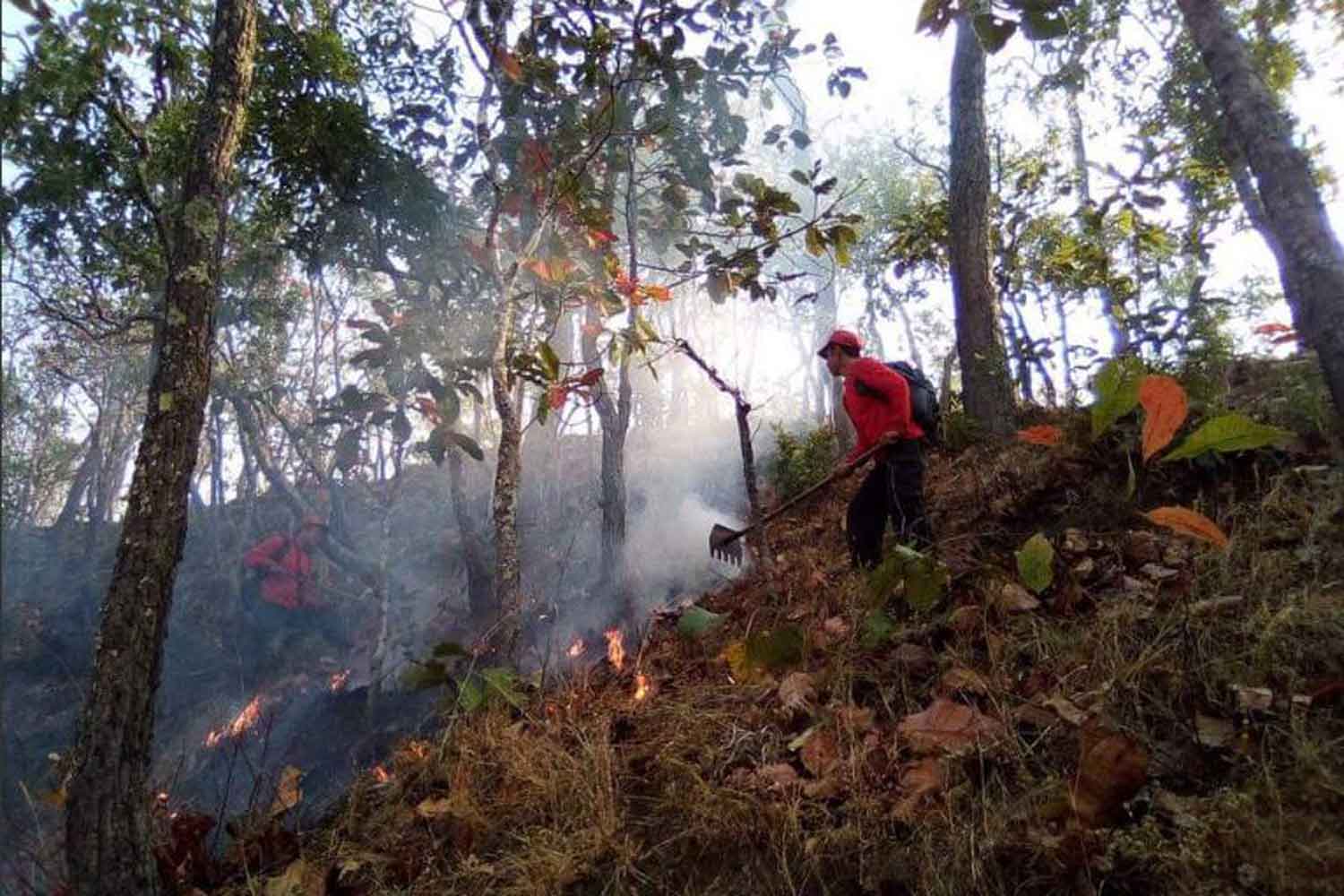
The National Environment Board (NEB) on Wednesday backed stronger measures to deal with air pollution from fine particle matter smaller than 2.5 microns (PM2.5). It ordered all 17 provinces in the North to cease burning activities until the end of April.
Siwaporn Rugsiyanon, a spokeswoman for the Centre for Air Pollution Mitigation at the Department of Pollution Control, said the level of PM2.5 had reached as high as 225 microgrammes per cubic metre (μg/m³) in some spots early this month.
Also, the number of hotspots from January to March jumped to 56,439 points nationwide, with 31,719 in the North. Of the latter, 80% were in forest land and 15% in farming zones.
Ms Siwaporn said the NEB has come up plans to deal with the PM2.5 pollution, including enforcing a zero-burning policy in both forest and agricultural zones in the 17 northern provinces.
Additional forest parks will be ordered to close if the situation worsens, which could see at least 92 forest zones operating under the Department of National Parks, Wildlife and Plant Conservation closed.
“The department has authority to close more parks if the situation gets worse. But the service zone for tourists remains open. Only those areas that are potential sources of forest burning are being closed. Legal measures will be taken against wrongdoers.
Other measures adopted by the NEB include prohibiting purchases of sugar cane harvested by burning methods; limiting the number of trucks permitted to enter urban zones, and how long they can stay there; a measure to make artificial rain; and a plan to set up PM2.5-free spaces.
The NEB will also ask the Department of National Parks, Wildlife and Plant Conservation and the Department of Royal Forest to reduce the number of hotspots in each forest zone.
Meanwhile, the Ministry of Industry and the Ministry of Agriculture and Cooperatives will implement a zero-burning policy in farming zones, including levying steep taxes elsewhere so import taxes for farming engines can be lowered, to promote alternatives to burning activities.
A “pollution clinic” will also be set up in high-risk areas, the NEB said.
Asst Prof Surat Bualert, dean of the Faculty of Environment at Kasetsart University, disclosed the results of a probe by the “Dust Detective” research team into the sources Bangkok’s dust particles.
He said the main source of PM2.5 smog in the capital is from burning activities outside the city. It was essential to control activities in the agricultural sector to make Bangkok’s air more breathable again, Asst Prof Surat said.
